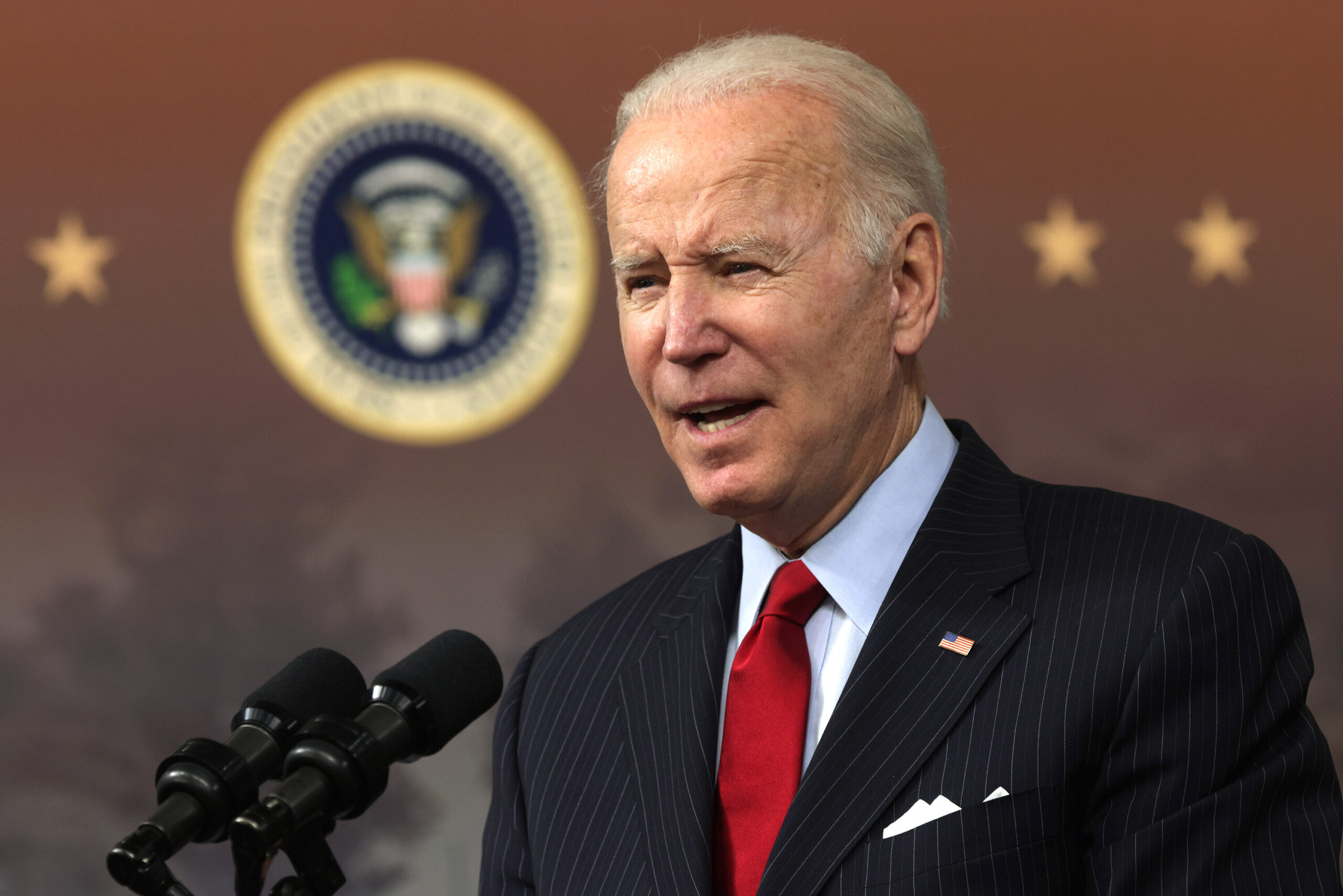
Biden calls out racism while unveiling new HIV/AIDS strategy
Between 2015 and 2019, new HIV infections decreased by 8%, but gay and bisexual Black and Latino men are still disproportionately impacted.
On Wednesday, Dec. 1, the Biden administration unveiled its new HIV/AIDS strategy in an annual commemoration of World AIDS Day, which aims for a 90% reduction in new HIV cases in the U.S. over the next nine years.
The administration called racism a “public health threat” that must be addressed as the world seeks to end the epidemic.
The strategy intends to serve as a blueprint for how the administration will shape policies, research, programs and planning over the next three years.
Today, I wore a red ribbon to mark World AIDS Day. It’s a reminder of how far we’ve come, the work we have left, and the price we paid along the way. Ending the HIV epidemic is within our reach, and my Administration is committed to finishing this work. pic.twitter.com/zGrQRAdc4k
— President Biden (@POTUS) December 2, 2021
It asserts that over generations “structural inequities have resulted in racial and ethnic health disparities that are severe, far-reaching, and unacceptable.”
Today’s HIV treatments can give people living with the AIDS virus a near-normal life expectancy, and can make those patients less likely to infect other people.
Between 2015 and 2019, new HIV infections decreased in the U.S. about 8%, but Black and Latino communities —particularly gay and bisexual men within those groups —continue to be disproportionately impacted, according to Centers for Disease Control and Prevention data.
African-Americans make up about 13% of the U.S. population, but accounted for more than 40% of new infections. The Latino population accounted for nearly 25% of new infections despite making up about 18.5% of the U.S. population.
Disparities also exist among gay and bisexual men, and Black and Latina women.
To reduce the disparities, the strategy includes calls for focusing on the needs of these affected populations, supporting racial justice, combating HIV-related stigma, and providing leadership and employment opportunities for people with or who experience risk for HIV.
RELATED CONTENT
Happening Now: President Biden delivers remarks to commemorate World AIDS Day. https://t.co/GS5qfBTy37
— The White House (@WhiteHouse) December 1, 2021
“I want to make sure that everyone in the United States knows their HIV status, and everyone with HIV receives high-quality care and treatment that they deserve and that we end the harmful stigma around HIV and AIDS,” Biden told an audience of American activists, politicians and medical experts, including Dr. Anthony Fauci.
In addition to addressing racism’s impact on Americans battling the virus or at risk for contracting it, the new strategy puts a lot of emphasis on harm reduction techniques, such as syringe service programs, and encourages reform of state laws that criminalize behavior of people with HIV for potentially exposing others.
Biden said he was shocked to find out that 35 states have laws that criminalize HIV-positive people spitting in public even though it has long been proven that the virus can’t be transmitted through saliva.
“We have to follow science and that means eliminating laws that perpetuate discrimination, exacerbate disparities, discourage HIV testing and take us further away from our goal,” Biden said.
The administration also recently announced it will host the Global Fund to Fight AIDS replenishment conference in 2022. The U.S. has contributed about $17 billion to the fund, about a third of all donor contributions.
Honored to continue this tradition on #WorldAidsDay, remembering the lives lost to HIV/AIDS and supporting those living with the virus across the world. pic.twitter.com/IvYjbYmKj7
— Jill Biden (@FLOTUS) December 1, 2021
Biden also made a commitment earlier this year, in which he sent $250 million of American Rescue Plan funding to the President’s Emergency Plan for AIDS Relief, a program established by President George W. Bush in 2003 to combat the disease internationally.
"We can do this. We're going to engage with people with lived experience with HIV and ensure that our efforts are appropriate and effective and centered around the needs of the HIV community,” Biden said.











LEAVE A COMMENT:
Join the discussion! Leave a comment.